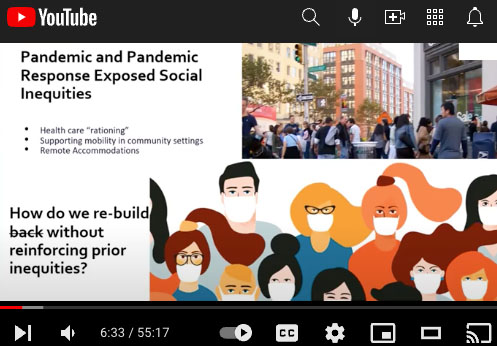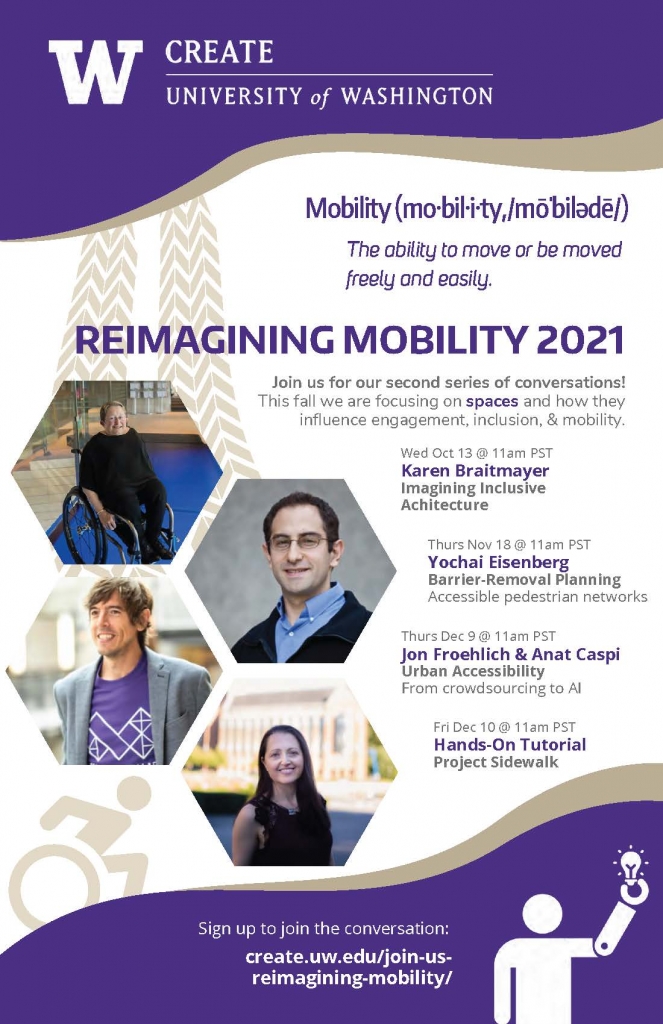
In December 2021, CREATE faculty Anat Caspi and Jon Froehlich discussed the innovative ways they are using AI, crowdsourcing, and translational research to reimagine urban accessibility.
Teams from the UW Makeability Lab and the UW Taskar Center for Accessible Technology have worked to develop and deploy tools like AccessMaps, OpenSidewalks, and Project Sidewalk that are transforming how we share, evaluate, and understand our urban environments.
Participants were invited to a deep dive into one of these initiatives – Project Sidewalk – to learn how to contribute to the crowd-sourcing efforts. Despite the important role of sidewalks in supporting mobility, accessibility, and public health, there is a lack of high-quality datasets and corresponding analyses on sidewalk existence and condition.

Project Sidewalk explores a twofold vision: first, to develop scalable mechanisms to locate and assess sidewalks in cities across the world using Crowd+AI approaches, and second, to use this data to support new urban analyses and mobility tools.
Project Sidewalk is currently deployed in seven cities, including two in Mexico.
Join the Reimagining Mobility conversation
Join us for a series of conversations imagining the future of mobility. Hosted by CREATE Associate Directors Kat Steele and Heather Feldner, we connect and learn from guests who are engaged in critical mobility work – ranging from researchers to small business owners to self-advocates. We will dive deeply into conversations about mobility as a multifaceted concept, and explore how it intersects with other dimensions of access across contexts of research, education, and public policy.
Upcoming conversations
Stay tuned. 2022 series to be announced.
